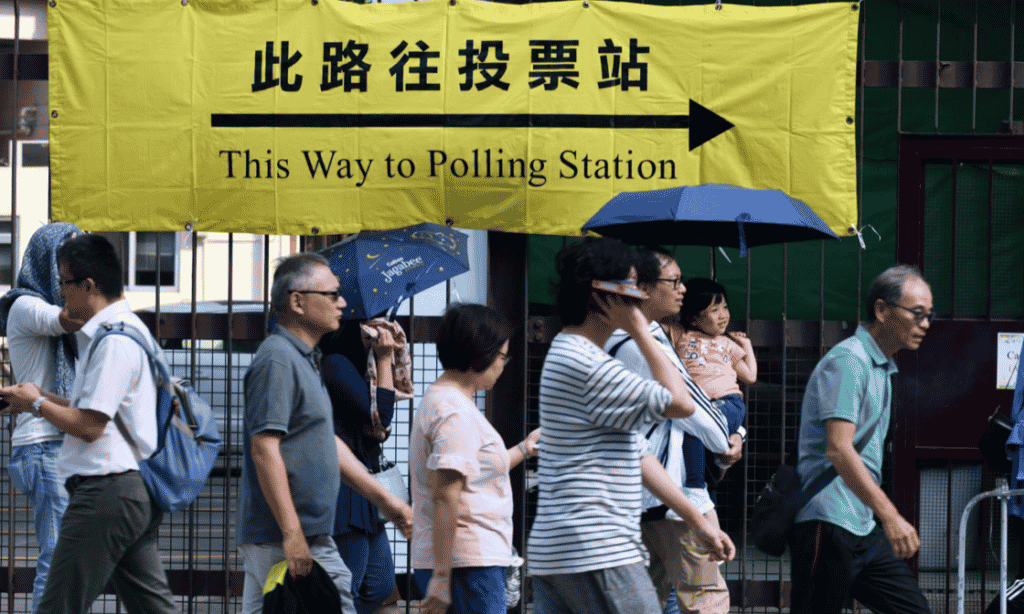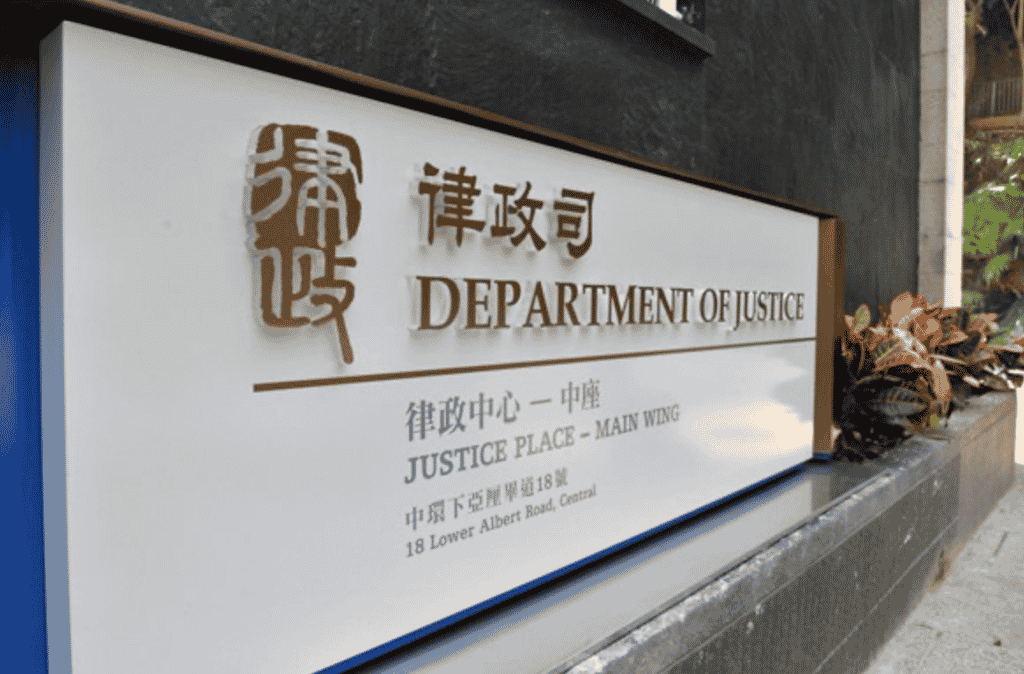"Governance and Political System" Thematic Research Series
The District Council was established in 1982. Its functions mainly include providing advice to the government, carrying out district environmental improvement projects based on allocations, and playing an important role in promoting community participation.
However, from observation, the work of District Councils has been criticized frequently in recent years. Some of the figures reflect that in the last three terms of the District Council, the total number of times different policy bureaux and departments consulted the District Council on territory-wide issues and regional affairs has shown a downward trend.
On the other hand, among the current 1,200 members of the Chief Executive Election Committee, 117 are elected by district councilors, accounting for nearly one-tenth of the total number of members of the Election Committee. In addition, the Legislative Council has added five new functional constituencies since 2012 - the District Council (Second) with five seats. Electoral district members have the right to stand for election and the right to nominate; reflecting the increasing role of the District Council in Hong Kong's political system. important.
As society moves forward, the public has certain demands on district councils; for young people, this situation deserves even more attention.
The District Council has been in operation for more than 30 years, and Hong Kong society has also undergone many changes during this period. In fact, the role and functions of District Councils have not been reviewed for more than 10 years. The new District Council election will be held in November 2019. How to enable district councils to effectively perform their due functions while keeping pace with the times is a very timely and worthy topic of discussion.
This study attempts to understand Hong Kong youth’s evaluation of the role and functions of district councils, as well as their perceptions of district councils. In addition, the study also draws on some overseas experience and interviews with local experts, scholars and current district councilors, hoping to put forward feasible suggestions on strengthening the role and functions of district councils.
This study collected information from June to August 2019 through several aspects, including literature reference and youth field opinion survey. A total of 520 young people aged 18 to 35 were interviewed, as well as 19 exclusive interviews, including 4 familiar Experts and scholars on local district council development and some overseas local administrative planning, as well as 15 current district councilors.
Main results of the study
- The value of public opinion representatives in district councils has been affirmed; their participation in local politics has increased in recent years. The authorities have the responsibility to continue to assist district councils in exerting the above-mentioned value and influence.
- The challenges faced by district councils in performing their functions mainly include the following four aspects: 2.1 It is difficult for district councils to effectively reflect public opinion to the government 2.2 The government does not pay enough attention to consultation with district councils 2.3 The constituencies are too small 2.4 Information dissemination lags behind the pace of society
- District councils can be regarded as a training base for political talents; however, district work is never easy, and the entry and development ladder for Hong Kong's political career is not clear. The younger generation has concerns about joining district councils.
- The young people interviewed are concerned about district council affairs, and they are also concerned about the deliberation ability of district councilors. Interviewed experts and district councilors believe that enhancing the policy research space and level of district councils will help improve the overall quality of district councils.
- There are considerable differences in some of the regulations in the standing orders of various district councils involving issues such as public opinion authorization and public participation. It is worth discussing whether the current provisions in the standing orders of various district councils related to the above aspects should be unified to provide clear guidance to the society.
Research main recommendations
- Examine the current role and functions of district councils, and introduce the concept of community rights to promote the effectiveness of district councils and the public in building communities and meet today's society's demands for district councils.
- Expand the constituencies, enhance the thinking and abilities of district councilors, and promote regional planning and development.
- Each district council has set up an information research team to enhance district councilors’ capabilities in policy analysis and deliberation, while also improving the overall quality of district councils.
- Strengthen the collaborative relationship between District Officers and District Council partners.
- Improving the transparency of District Council information not only promotes the effective transmission of District Council information, but also strengthens public supervision of District Councils.
- Establish a unified approach to the regulations on issues such as public opinion authorization, public participation, and information disclosure in the standing orders of each district council to provide clear guidance to the society.



